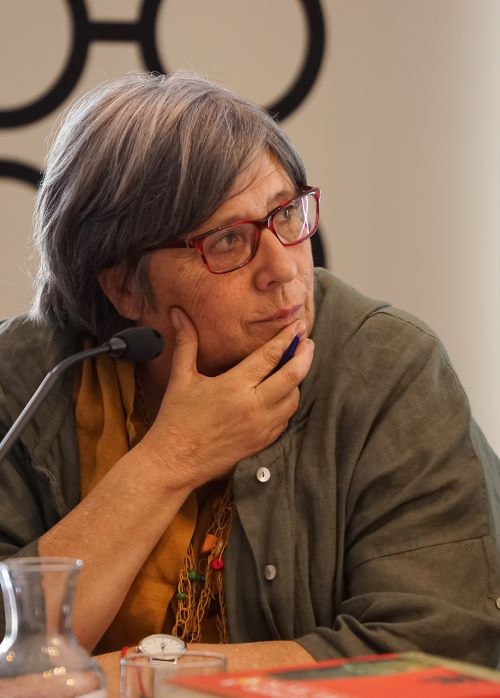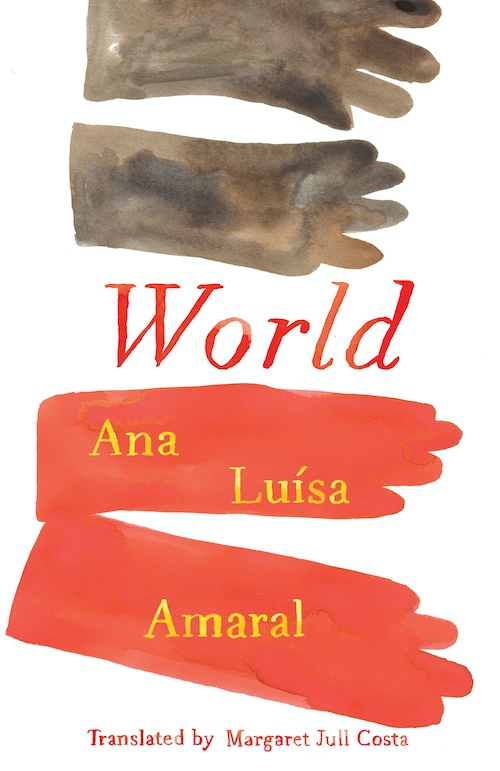My countryis this room opening onto the balcony,it is also the balcony with its flowersthat come and go over the months, and that seem to meluminous even when they turn the colorof a sad windMy countryis the white cloth covering me, the dishes placed on meeach day, the arms that lean on me,even the water in which I nearly drowned,spilled absentmindedly by the hand that poured itover my body, a clumsy,thoughtless handI came to know it early on,my country that is,when it was still the perfumed landscapeof various timbers, my sisters all, of the sawmill,its air filled with tiny filaments and sweetlyscented dust, the fingers that then chose me,a broad piece of wood, and stroked and caressed mewith planes, varnish, polishthat was already my country: a prairie of insects,white winds, the living sap that ranin my veins, the water I drank to survive,and that protected meMay the hand that rests on mehere, now,remember this our shared condition:we came from the same realm, and to that same realmwe will go, she and me:the atoms that shaped and made mecould so easily have been hers A mesaA minha pátriaé esta sala que dá para a varanda,e é também a varanda com as suas floresque vão e vêm meses fora, e eu vejo luminosasmesmo quando se tornam corde vento tristeA minha pátriaé a toalha branca que me cobre, são os pratosque sustento todos os dias, os braçosque se encostam a mim,até a água onde quase me afoguei,por culpa distraída da mão que no meu corpoa colocou, mão insensataesquecida de cuidarComecei cedo a conhecê-la,à minha pátria.Quando era ainda a paisagem perfumadadas madeiras, irmãs de nascimento, a serração,o ar coberto de minúsculos fios e pótão bem cheiroso, os dedos que depois me tomaram,tábua larga, me afagaramcom plainas, o verniz, o brilhotudo isso foi já a minha pátria: pradaria de insectos,ventos brancos, a seiva viva que corrianos meus veios, a água que eu bebia para sobreviver,e que me protegiaQue a mão que agora aqui e sobre mimse estendese lembre desta inteira condição comum:de reino igual viemos, para igual reinovamos, ela e euos átomos que me formam e fizerampodem ter sido os seus
The table
Feature Date
- April 4, 2023
Series
- Translation
Selected By
Share This Poem
Print This Poem
“The table” by Ana Luísa Amaral, translated by Margaret Jull Costa, from WORLD, copyright © 2023 by Rita Barata do Amaral, English translation copyright © 2023 by Margaret Jull Costa.
Used by permission of New Directions Publishing Corp.

Casa Fernando Pessoa
Born in Lisbon in 1956, and, for many years, Professor of Anglo-American Literature at the University of Oporto, Ana Luísa Amaral published her first collection of poems, Minha Senhora de Quê, in 1990, and has since published many more, along with plays, children’s literature, a novel and translations from the English, including translations of Emily Dickinson and William Shakespeare. Her work has brought her many prizes both in Portugal and elsewhere, including, most recently, the 2021 Premio Reina Sofia de Poesia Iberoamericana. She is considered to be one of the foremost Portuguese poets of her day, and two collections of her poems have been published in the UK and in the USA: The Art of Being a Tiger and What’s in a Name. The latter was published by New Directions in 2019 to great acclaim, followed by World in 2023. Ana Luísa died on 5 August 2022.

Margaret Jull Costa has worked as a translator for over thirty years, translating the works of many Spanish and Portuguese writers, among them novelists: Javier Marías, José Saramago, and Eça de Queiroz, and poets: Fernando Pessoa, Sophia de Mello Breyner Andresen, Mário de Sá-Carneiro, and Ana Luísa Amaral. Her work has brought her many prizes, among them the 2008 Pen Book-of-the Month-Club Translation Prize and the Oxford Weidenfeld Translation Prize for The Maias by Eça de Queiroz. In 2013, she was appointed a Fellow of the Royal Society of Literature; in 2014, she was awarded an OBE for services to literature; and in 2018, she was awarded the Ordem Infante D. Henrique by the Portuguese government and a Lifetime Award for Excellence in Translation by the Queen Sofia Spanish Institute, New York.
"Amaral carves a space for fragmentation, uncertainty, and meditative silence within the repertoire of inherited forms. In this accomplished volume and translation, Amaral’s subtle experimentation makes strange an artistic repertoire we thought we knew."
— Publishers Weekly
"Brilliant: her words celebrate the hidden potentiality inside every woman―and the spontaneity of life itself, even in the contemplation of sudden death."
— Asymptote
"This bilingual volume, pairing Costa’s translations with Amaral’s Portuguese originals, relies on humble imagery and plain language to plumb complicated truths."
— The New York Times Book Review
"Lightning in a bottle: Amaral has a remarkable gift for making the personal universal and the universal intimate."
— Hasan Altaf, Paris Review Dailey
Poetry Daily Depends on You
With your support, we make reading the best contemporary poetry a treasured daily experience. Consider a contribution today.




